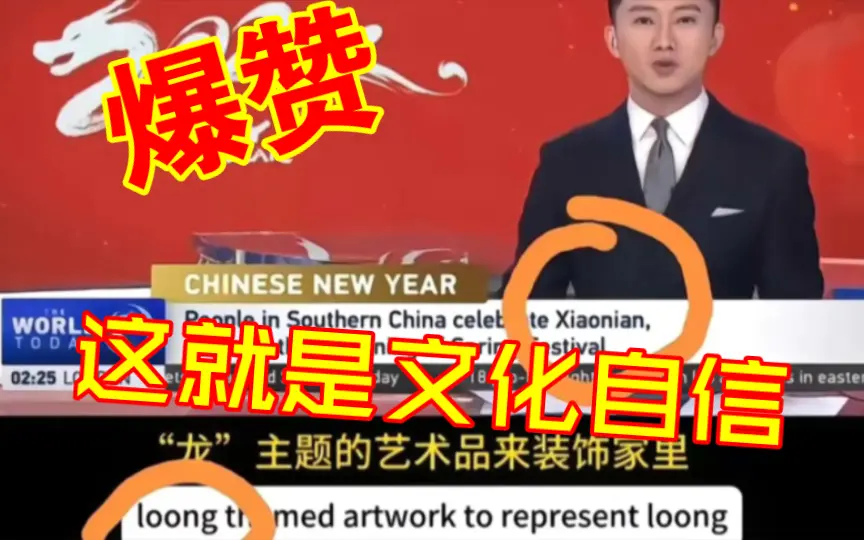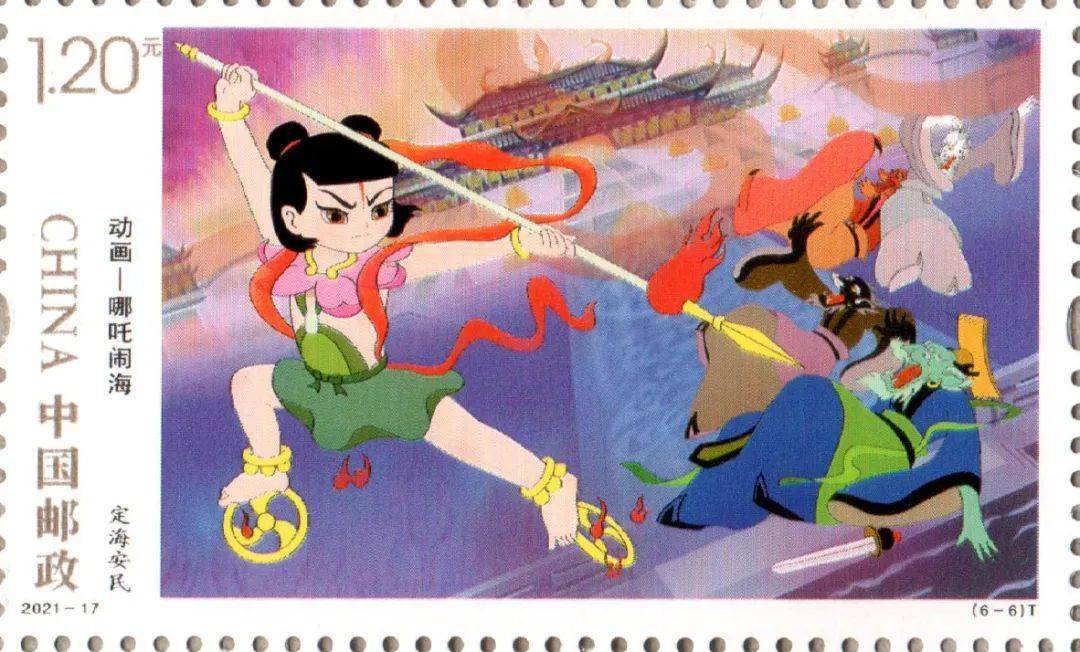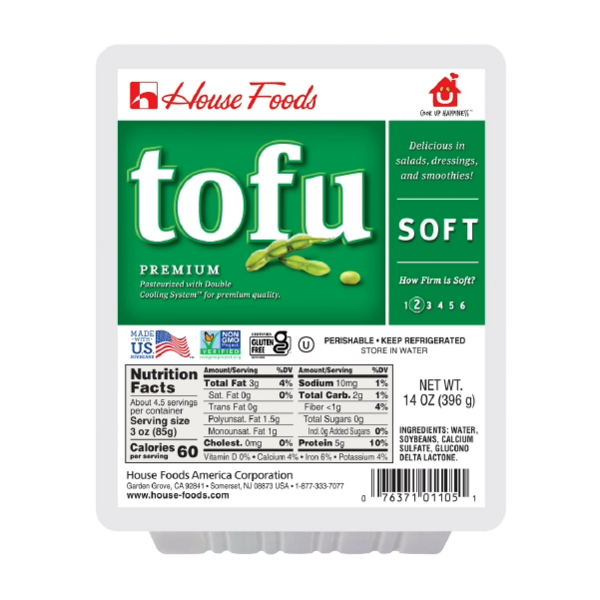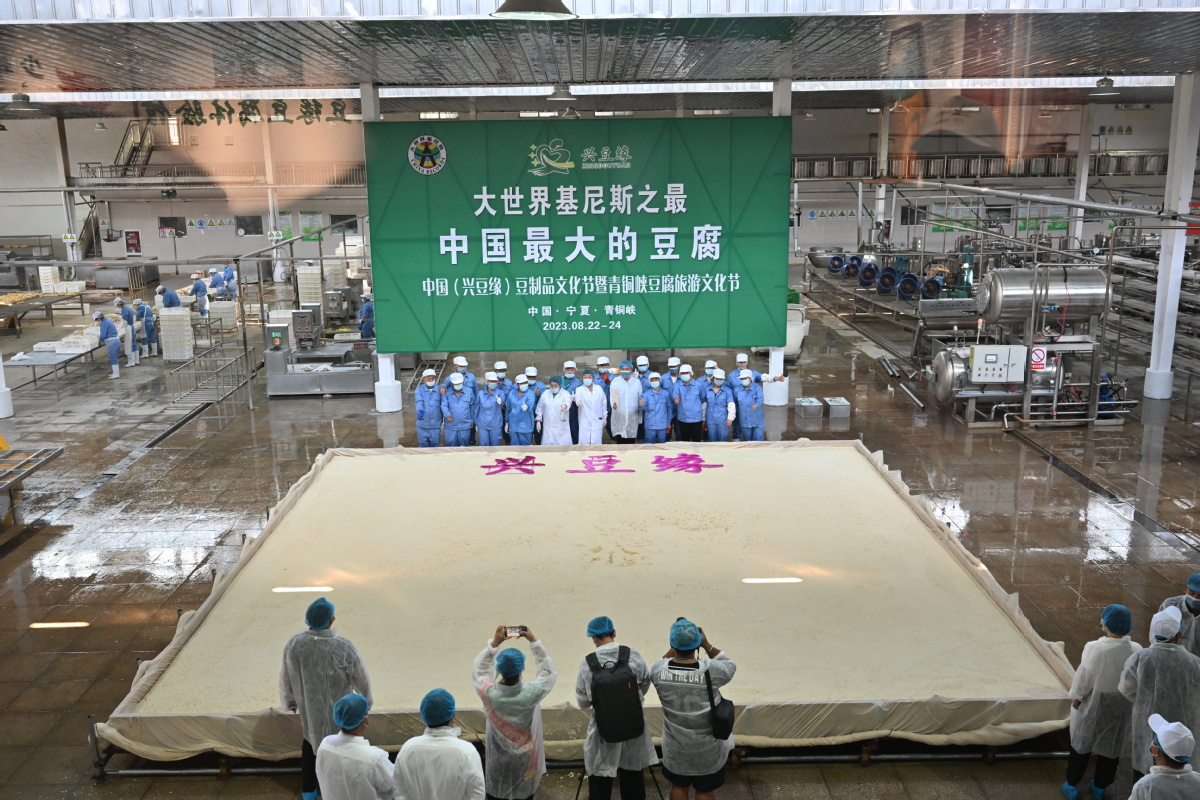| Pages in topic: < [1 2 3 4 5 6 7 8 9 10 11 12 13 14 15 16 17 18 19 20 21 22 23 24 25 26 27 28] > | “龙”的英文应该翻译成 Loong - 转发 (A Chinese Teacher Suggests that "Dragon" should be written as "Loong") Thread poster: Libin PhD
|
|---|
hj58
Local time: 18:38
English
| 你用了,别人才可能接受。你都不改译,却指望外国人替你改译? | Feb 20 |
| | | | ysun 
United States
Local time: 05:38
English to Chinese
+ ...
如果你用 Google 搜索"九龙壁" & “Nine-Loong”,将会搜到以下两个内容基本相同的网页:
1. Holiday Hangouts: Traces of Dragons in Municipal Parks
https://english.beijing.gov.cn/specials/parktours/informationvisitors/focus/202401/t20240126_3547230.html
Nine-Dragon Wall (九龙壁)  The Nine-Dragon Wall is the only double-sided screen wall among China's Top Three Nine-Dragon Walls, made of colorful glazed bricks. The front and back sides of the wall each contains a relief featuring nine dragons in various forms dancing in sky, through clouds, above sea and across rocks.
不过当我昨天阅读此文时,它使用的还是 "Nine-loong Wall" 的说法,今天却已经改成 Nine-Dragon Wall 了!不知其中有何奥妙?
2. Holiday Hangouts: Traces of Loongs in Municipal Parks
https://english.visitbeijing.com.cn/article/4GN0d9OjCab
Nine-loong Wall (九龙壁)
The Nine-loong Wall is the only double-sided screen wall among China's Top Three Nine-loong Walls, made of colorful glazed bricks. The front and back sides of the wall each contains a relief featuring nine loongs in various forms dancing in sky, through clouds, above sea and across rocks.
此文使用的仍然还是 "Nine-loong Wall"。下面的落款也是 The People's Government of Beijing Municipality。
由此让我想起,与香港的“九龙”对应的英文 Kowloon 是否也应该改一下?是否应该改成 Kow-loong、Nine-loong,或干脆改成 Jiu-long?
“Loong”與”Dragon”的分別
https://www.youtube.com/watch?v=clVpcP724UQ
| | | | ysun 
United States
Local time: 05:38
English to Chinese
+ ...
| What is "Xiaonian"? | Feb 21 |

乱用汉语拼音、注音符号,一厢情愿生造“英文单词”,并非是文化自信,而是坐井观天、狂妄无知!
China Daily: Traditional Chinese 'Little New Year' festival
https://www.chinadaily.com.cn/food/2014-01/23/content_17253382.htm
Little New Year, which falls about a week before the lunar New Year, is also known as the Festival of the Kitchen God, the deity who oversees the moral character of each household. In one of the most distinctive traditions of Spring Festival, a paper image of the Kitchen God is burnt on Little New Year, dispatching the god's spirit to Heaven to report on the family's conduct over the past year.
https://en.wikipedia.org/wiki/Kitchen_God
The kitchen deity – also known as the Stove God, named Zao Jun, Zao Shen, Tsao Chun, Zao kimjah, Cokimjah or Zhang Lang – is the most important of a plethora of Chinese domestic gods that protect the hearth and family. The Kitchen God is recognized in Chinese folk religion, Chinese mythology, and Taoism. Under different names, he is also celebrated in several other Asian religions.
对照:这就是文化自信!中国龙翻译是Loong不再是Dragon 我们是龙的传人
https://m.163.com/dy/article/IQGFFVC805563OYC.html
[修改时间: 2024-02-22 04:06 GMT]
| | | | ysun 
United States
Local time: 05:38
English to Chinese
+ ...
| Is there a need to tell ‘loongs’ from Western dragons? | Feb 22 |
Animated cartoon: Little Nezha Fights Great Dragon Kings (English Dub)
Rated G: General audiences – All ages admitted. (老少皆宜)
https://www.youtube.com/watch?v=9gzR06-STHE

Happy New Year of the Dragon - or should that be 'Loong'?
https://www.cnn.com/2024/02/16/china/happy-new-year-of-the-dragon-or-loong-intl-hnk/index.html
Is there a need to tell ‘loongs’ from Western dragons?
Many on Chinese social media Weibo supported the use of the term.
“It’s a good thing because the west has demonized China and then put the name of one of their evil objects on our mascot, which is nothing short of being civilized,” one influential user, who has 1.8 million followers, wrote in a post liked by 4,000 others on Weibo.
But the accurate translation should have been “Long” - with a single “o” - based on China’s standard romanization, Professor Victor Mair, who specializes in Chinese Language and Literature at the University of Pennsylvania, pointed out in his blog recently.
“Transcribing long into English ‘loong’ would cause more problems and confusion than translating it as ‘dragon’,” he wrote.
Mair also suggested the move to use “loong” appears to be driven more by politics than language.
He noted that “some patriotic and political sources in the Sinosphere” have been peddling the concept that the Western dragon is fearful.
But he said he doesn’t believe that, “since the typical Chinese dragon has horns, claws, fangs, gaping whiskered maw, glaring eyes, snake-like body with scales, [and is] not a creature you’d like to meet in the middle of the night.”
Eden, from Valparaiso University, said evil dragons exist in Eastern culture just as there are benevolent dragons in the West.
Their portrayal depends on who’s telling the story – and the message they want to convey about their society, he said.
“I think that this emphasis comes from nationalistic and cultural developments that arise from cultures, modern-day nations, and peoples wanting to distinguish themselves and their cultures and ideas from others, in this particular case, to focus on the differences between Eastern and Western society,” he said.
| | |
|
|
|
ysun 
United States
Local time: 05:38
English to Chinese
+ ...
法国国际广播电台:香港特首用-loong-说龙
中国媒体今年翻译龙年时流行用「Year of Loong」,而不是惯用的「dragon」,引起中国欲争取话语权和去英语化的评论,但香港特首李家超却率先在春节的国际花车巡游上率先用「the Year of Loong」来说龙年。香港不少专栏作家和评论员却指新译法既是中国倒退至上世纪的汉字拉丁化的时代,自绝于国际社会;亦寓意不吉,因为「Loong」的发音,与「(炒)燶」丶「(借)loan」丶「(穿)窿」等字雷同。
......
吴志森:汉字拉丁化是走回头路 与开放相违
...... 亦有评论员指出,这是中国去英语化的一部分。但他认为,若认为翻译拉丁化便是文化自信或制度自信,那是自欺欺人,事实上,其他国家的媒体并没有随中国媒体而更改。
他认为,这是走回头路,绝对是大倒退,因为汉字罗马化(又称拉丁化)在上世纪已经在做,但以拉丁文音译中文根本行不通,外人难以看懂。
他指出,拉丁化与中国的改革开放背道而驰,是闭关自守的表现,即不管国际社会是否认受,只是自我感觉良好地做,认为内卷即可。
https://www.youtube.com/watch?v=clVpcP724UQ
莫搞错,我知道李家超係講 Loong、唔係 Loan! 
| | | | hj58
Local time: 18:38
English
这次改译龙为 Loong 是民间不约而同、官媒跟进报道,但是,外宣管理部门并没有批准改译,官方专家学者至今是反对改译的,但是又不可能禁止改译。所以,现在是八仙过海,五花八门,各人各单位自己决定如何翻译龙。
ysun wrote: 如果你用 Google 搜索"九龙壁" & “Nine-Loong”,将会搜到以下两个内容基本相同的网页: 1. Holiday Hangouts: Traces of Dragons in Municipal Parks https://english.beijing.gov.cn/specials/parktours/informationvisitors/focus/202401/t20240126_3547230.html Nine-Dragon Wall (九龙壁)  The Nine-Dragon Wall is the only double-sided screen wall among China's Top Three Nine-Dragon Walls, made of colorful glazed bricks. The front and back sides of the wall each contains a relief featuring nine dragons in various forms dancing in sky, through clouds, above sea and across rocks. 不过当我昨天阅读此文时,它使用的还是 " Nine-loong Wall" 的说法,今天却已经改成 Nine-Dragon Wall 了!不知其中有何奥妙? 2. Holiday Hangouts: Traces of Loongs in Municipal Parks https://english.visitbeijing.com.cn/article/4GN0d9OjCab Nine-loong Wall (九龙壁)
The Nine-loong Wall is the only double-sided screen wall among China's Top Three Nine-loong Walls, made of colorful glazed bricks. The front and back sides of the wall each contains a relief featuring nine loongs in various forms dancing in sky, through clouds, above sea and across rocks. 此文使用的仍然还是 " Nine-loong Wall"。下面的落款也是 The People's Government of Beijing Municipality。 由此让我想起,与香港的“九龙”对应的英文 Kowloon 是否也应该改一下?是否应该改成 Kow-loong、Nine-loong,或干脆改成 Jiu-long? “Loong”與”Dragon”的分別 https://www.youtube.com/watch?v=clVpcP724UQ
| | | | ysun 
United States
Local time: 05:38
English to Chinese
+ ...
hj58 wrote:
这次改译龙为 Loong 是民间不约而同、官媒跟进报道,但是,外宣管理部门并没有批准改译,官方专家学者至今是反对改译的,但是又不可能禁止改译。所以,现在是八仙过海,五花八门,各人各单位自己决定如何翻译龙。
黄教授:
你大力主张改译龙为 Loong,本来只是个学术问题,很正常。但现在官媒跟进报道,把一个纯粹的学术问题提高到“文化自信”、“民族自信”的高度,却反而引起了国内外(包括中国香港、台湾)不少民众和媒体的强烈反弹。所以,官方助推的做法犹如揠苗助长,适得其反!
国内的某些官员和专家忽略了一个关键问题,“改译龙为 Loong”能否流行、能否被普遍接受,取决于国外使用英语的广大民众能否接受。否则,即使中华人民共和国国家标准化管理委员会、全国语言与术语标准化技术委员会等机构以国家标准的形式,将 Loong 列入国家标准,也是枉然。
同样,即使西方某些权威词典将 Gaokao (高考)之类的音译收入词典,也不一定被普遍接受。西方媒体、文章在借用 Gaokao 一词时,往往还得加上 “the national undergraduate admission exam of China” 之类的注解。否则一般民众仍会感到一头雾水。
不可否认,英语吸收了许多外来词,包括源自中国的外来词,例如 kung fu(功夫)、Tai Chi(太极)等。国内有一些专家学者还常以 Toufu 为例,企图说明英语国家民众能接受基于汉语拼音的音译。实际上在美国,普遍代表“豆腐”的单词是 Tofu 而不是 Toufu。况且,Toufu 并非是代表豆腐的汉语拼音。正确的汉语拼音应该是 dòufu。与汉语拼音 toufu 对应的词恐怕是“偷、腐”。英语中 Tofu 这一外来词实际上来自于日本,尽管全世界最先发明豆腐的是中国(公元前179–122年的汉朝)!日本人直到奈良时代(公元710年—794年)才从中国引进了豆腐及其制作技术。瞿秋白先生在临终之前还说:“中国的豆腐也是很好吃的东西,世界第一。”
汉语中也有许多外来词,但不能因此就斥之为崇洋媚外。可悲的是,某些中国人(绝非是指黄佶教授)往往喜欢把学术问题提高到政治高度。
[修改时间: 2024-02-24 06:45 GMT]
| | | | ysun 
United States
Local time: 05:38
English to Chinese
+ ...
https://en.wikipedia.org/wiki/Tofu
Tofu (Japanese: 豆腐, Hepburn: Tōfu, Korean: 두부 Chinese: 豆腐; pinyin: dòufu) is a food prepared by coagulating soy milk and then pressing the resulting curds into solid white blocks of varying softness: silken, soft, firm, extra (or super) firm. Tofu is also known as bean curd in English. It is a traditional component of East Asian and Southeast Asian cuisines,[1] and has been consumed in China for over 2,000 years.[2][3] In modern Western cooking, it is most often treated as a meat substitute.
Nutritionally, tofu is low in calories, while containing a relatively large amount of protein. It is high in iron, and can have a high calcium or magnesium content depending on the coagulants (e.g. calcium chloride, calcium sulphate, magnesium sulphate) used in manufacturing.
Etymology
The English word "tofu" comes from Japanese tōfu (豆腐). The Japanese tofu, in turn, is a borrowing of Chinese 豆腐 (Mandarin: dòufǔ; tou4-fu) 'bean curd, bean ferment'.[4][5][6][7]
The earliest documentation of the word in English is in the 1704 translation of Domingo Fernández Navarrete's A Collection of Voyages and Travels, that describes how tofu was made.[8] The word towfu also appears in a 1770 letter from the English merchant James Flint to Benjamin Franklin.[9]: 73 The term "bean curd(s)" for tofu has been used in the United States since at least 1840.[10][11]
History
Tofu making was first recorded during the Chinese Han dynasty about 2000 years ago.[2] Chinese legend ascribes its invention to Prince Liu An (179–122 BC) of Anhui province. Tofu and its production technique were introduced to Japan[12][13][14] during the Nara period (710–794).
中国编写的许多英汉词典和英语教科书通常都把"bean curd"列为与“豆腐”对应的英文单词,但在美国最普遍使用的却是"Tofu"。中国编写的许多英语教科书往往与英语世界的实际情况严重脱节,所教的往往是中式英语!
Tofu made in USA:

| | |
|
|
|
ysun 
United States
Local time: 05:38
English to Chinese
+ ...
| Guinness World Records: Largest Piece of Tofu in the World | Feb 23 |
2015年世界豆腐发源地安徽淮安市做了块8吨重的豆腐,2023年宁夏青铜峡市就搞了个10吨重的,就是为了竞相申请个吉尼斯纪录!不过,完事之后送个老百姓吃,倒是件好事。但若不送给老百姓吃,不也就坏了,除非都做成臭豆腐!下一块世界最大的豆腐不知将出自哪里?搞完最大的还可搞个最长的、最宽的、最厚的,最硬的、最软的......甚至最臭的!  ... See more ... See more
| | | | hj58
Local time: 18:38
English
| 这次谈不上是“官方助推”。民间大量译龙为 loong 了,官方媒介只能报道 | Feb 24 |
这次谈不上是“官方助推”。民间大量译龙为 loong 了,官方媒介怎么办?视而不见?不可能,毕竟这是一件“事情”(即便不算新闻)。看见了,不报道,很奇怪,要报道,那就只能跟着译龙为 loong。
实际上十几年来官方外语媒介一直在(不情不愿地)使用 loong,因为报道对象名字里有 loong,例如李显龙,翼龙无人机(在中东非常有名),龙芯芯片,广州龙狮篮球�... See more 这次谈不上是“官方助推”。民间大量译龙为 loong 了,官方媒介怎么办?视而不见?不可能,毕竟这是一件“事情”(即便不算新闻)。看见了,不报道,很奇怪,要报道,那就只能跟着译龙为 loong。
实际上十几年来官方外语媒介一直在(不情不愿地)使用 loong,因为报道对象名字里有 loong,例如李显龙,翼龙无人机(在中东非常有名),龙芯芯片,广州龙狮篮球队和山西猛龙篮球队(中国职业篮球联赛成员)。只是这次译龙为 loong 的数量大爆发,本身成了新闻。
另一方面,龙年怎么翻译?在英语里 year of dragon 的含义是“凶年”、“灾年”,我收集到了很多语料。中外关系好的时候,没有人用此大做文章。国际关系不好了,就难说了,Death by China 一书,副标题就是号召全球对抗 dragon。龙年即使不被称为 year of loan,也会被称为 year of disaster 之类。
第三,官方外文媒介可能本来就在考虑龙年的翻译。往年没有 loong 方案(2009年后改译龙问题沉寂了,我也去研究其它课题了),所以还是 dragon year。但是这个龙年,loong 方案知名度很高,官媒内部肯定争论很大。中国日报主任记者写文说“支持 loong 的人先用起来”。英语世界知道龙不是 dragon,牛津词典几个月前专门收入 Chinese dragon,那么龙年就应该译为 the year of the Chinese dragon,显然太长了。loong 至少是 Chinese dragon 的同义词,于是取而代之,是顺理成章的事情。
如果国际关系情况良好,肯定不会有人从政治角度解读 loong,毕竟大陆地区是全世界华人中最晚改译龙为 loong 的。2000年台湾学者蒙天祥就呼吁译龙为 lung,2004年呼吁改译为 loong,比我早了六年。李小龙更是 1951年就使用这个艺名,对应的英文是 Lee Siu Loong。
如果“官方”指的是外宣管理机构,说它们助推,它们要冤枉死了。因为它们一直是反对改译龙的,2023年一月,外文出版社出版了一本“中国时政话语翻译基本规范.英文”,明确规定译龙为 (Chinese) dragon。国务院批准建立、外文局和教育部等建设的“中华思想文化术语传播工程”至今译龙为 dragon(有网站可看,我刚才又去看了一下)。官方专家学者多次讲座、接受采访、写文章,反对改译龙。如果有兴趣,我可以提供一个目录。前面我说官方外文媒体“不情不愿”的主要依据就是:一方面它们在新闻报道里使用 loong,另一方面,这些媒体的专家接受记者采访时反对改译龙。
所以,改译龙为 Loong 这件事情十几年来实际上是“民推官阻”。
ysun wrote: hj58 wrote:
这次改译龙为 Loong 是民间不约而同、官媒跟进报道,但是,外宣管理部门并没有批准改译,官方专家学者至今是反对改译的,但是又不可能禁止改译。所以,现在是八仙过海,五花八门,各人各单位自己决定如何翻译龙。 黄教授: 你大力主张改译龙为 Loong,本来只是个学术问题,很正常。但现在官媒跟进报道,把一个纯粹的学术问题提高到“文化自信”、“民族自信”的高度,却反而引起了国内外(包括中国香港、台湾)不少民众和媒体的强烈反弹。所以,官方助推的做法犹如揠苗助长,适得其反! 国内的某些官员和专家忽略了一个关键问题,“改译龙为 Loong”能否流行、能否被普遍接受,取决于国外使用英语的广大民众能否接受。否则,即使中华人民共和国国家标准化管理委员会、全国语言与术语标准化技术委员会等机构以国家标准的形式,将 Loong 列入国家标准,也是枉然。 同样,即使西方某些权威词典将 Gaokao (高考)之类的音译收入词典,也不一定被普遍接受。西方媒体、文章在借用 Gaokao 一词时,往往还得加上 “the national undergraduate admission exam of China” 之类的注解。否则一般民众仍会感到一头雾水。 不可否认,英语吸收了许多外来词,包括源自中国的外来词,例如 kung fu(功夫)、Tai Chi(太极)等。国内有一些专家学者还常以 Toufu 为例,企图说明英语国家民众能接受基于汉语拼音的音译。实际上在美国,普遍代表“豆腐”的单词是 Tofu 而不是 Toufu。况且,Toufu 并非是代表豆腐的汉语拼音。正确的汉语拼音应该是 dòufu。与汉语拼音 toufu 对应的词恐怕是“偷、腐”。英语中 Tofu 这一外来词实际上来自于日本,尽管全世界最先发明豆腐的是中国(公元前179–122年的汉朝)!日本人直到奈良时代(公元710年—794年)才从中国引进了豆腐及其制作技术。瞿秋白先生在临终之前还说:“中国的豆腐也是很好吃的东西,世界第一。” 汉语中也有许多外来词,但不能因此就斥之为崇洋媚外。可悲的是,某些中国人(绝非是指黄佶教授)往往喜欢把学术问题提高到政治高度。 [修改时间: 2024-02-24 06:45 GMT] ▲ Collapse
| | | | ysun 
United States
Local time: 05:38
English to Chinese
+ ...
| Oxford English Dictionay: "The Chinese Dragon" | Feb 25 |
https://www.proz.com/post/472128#472128
Dec 14, 2006 wherestip wrote: pkchan wrote:
中国龙图腾引发网民激烈辩论
Have they ever thought of just saying "The Chinese Dragon"? Loong is fine too. In my estimation no one in the English world is going to object to it. They probably have better things to do 
央视网:甲辰龙年前夕 单词“中国龙”被收录进《牛津英语词典》
https://news.cctv.com/2024/01/28/ARTIAobcPz92z1QrNrtco22D240128.shtml
史上第一次,Chinese dragon(中国龙)收进了品牌英语词典,而且还是OED,英语世界公认的词语权威。Chinese dragon经历了词汇化(lexicalization),由松散的自由组合转为紧密的固定搭配,而载入词典,成为名正言顺的词汇单位。
https://www.oed.com/dictionary/chinese-dragon_n?tab=meaning_and_use#1335120100
1. A representation or figure of a Chinese dragon (a mythological creature or god associated with China and depicted in a variety of different animal forms, but typically as a serpent with four limbs; cf. sense 2).
2. A mythological creature or god associated with China, depicted in a variety of different animal forms but typically as a serpent with four limbs, and symbolizing wisdom, fortune, and power. Also: such a creature viewed as a personification of China or its former empire.
| | | | ysun 
United States
Local time: 05:38
English to Chinese
+ ...
|
|
|
ysun 
United States
Local time: 05:38
English to Chinese
+ ...
hj58 wrote: 你准确地预言了 Loong 的情况。虽然官方机构至今反对,但是民间大量使用, wherestip wrote:
hj58,
You're right. "Loong" might be accepted by a larger English-speaking audience these days, especially where there is a larger population of Chinese-speaking people. These things take time. For example, 40 or 50 years ago, if you said "Beijing", many people in the English-speaking world would not know where that was; "Peking" was the proper English name for 北京 then. Today, very few would refer to China's capital as Peking.
IMO, some of these words that folks insist on using would gradually or in some instances suddenly gain acceptance by the mainstream media. An example of this latter case would be the city name "Kyiv" vs. the old "Kiev". However, some other newly-minted words over time for one reason or another would just fall by the wayside.
[Edited at 2022-05-30 16:54 GMT]
ysun wrote:
国内的某些官员和专家忽略了一个关键问题,“改译龙为 Loong”能否流行、能否被普遍接受,取决于国外使用英语的广大民众能否接受。否则,即使中华人民共和国国家标准化管理委员会、全国语言与术语标准化技术委员会等机构以国家标准的形式,将 Loong 列入国家标准,也是枉然。
[修改时间: 2024-02-24 06:45 GMT]
中国民间大量使用 Loong,起不了决定性作用。关键在于英语国家的广大民众能否接受将中国的“龙”字译为 Loong。wherestip 当时说的也是"Loong might be accepted by a larger English-speaking audience." 如果他们能接受,我将乐见其成。但依我估计,将来最好的结果也只不过是《牛津词典》在现有的 Loong 词条下面加上一句话“See Chinese Dragon”,变成:
1. loong, variant of lung, n. Each of the two respiratory organs in man and most vertebrate animals, placed within the cavity of the thorax on either side of the heart and… 2. See "Chinese Dragon"
也许你会说,“中国的龙怎么译成英文应由我们中国人作主”。如果这样的话,你是不是也应该说,“中国人发明的豆腐怎么译成英文应由我们中国人作主。中国人发明豆腐约一千年之后日本人才学会做豆腐。所以,豆腐不应译为 Tofu,而应译为 Doufu”?
[修改时间: 2024-02-25 08:15 GMT]
| | | | Huijun Suo 
China
Local time: 18:38
English to Chinese
+ ...
我认为官方不情愿改译是有道理的,如果改成loong,拼写发音接近loon(当然可以标音为/lo:ng/,我怀疑会有多大效果),据陆谷孙《英汉大词典》,有好几个词条loon,它们都读/lu:n/:
loon 1 潜鸟,阿比;美国海军潜鸟式导弹;(口语)疯子
loon 2 流氓,无赖,二流子;(苏格兰英语)男孩,小伙子,乡巴佬,蠢人;(古语)微贱的人
loon 3 (口语,旧词)(loons)喇叭裤;(动词)胡闹嬉戏
另外还有loony, looney发疯的,疯狂的,愚蠢的;(名词)疯子
词义疯子是来自旧词luny < lunatic疯子,精神病患者,狂人,极端愚蠢的人 < 古法语lunatique < 拉丁语lunaticus发疯的 < luna月亮,据认为精神病与月的盈亏有关。
企业广告宣传都很忌讳这种同音、谐音造成的负面联想,大外宣更要慎之又慎。
| | | | ysun 
United States
Local time: 05:38
English to Chinese
+ ...
hj58 wrote:
这次谈不上是“官方助推”。民间大量译龙为 loong 了,官方媒介怎么办?视而不见?不可能,毕竟这是一件“事情”(即便不算新闻)。看见了,不报道,很奇怪,要报道,那就只能跟着译龙为 loong。
......
如果“官方”指的是外宣管理机构,说它们助推,它们要冤枉死了。因为它们一直是反对改译龙的,2023年一月,外文出版社出版了一本“中国时政话语翻译基本规范.英文”,明确规定译龙为 (Chinese) dragon。国务院批准建立、外文局和教育部等建设的“中华思想文化术语传播工程”至今译龙为 dragon(有网站可看,我刚才又去看了一下)。官方专家学者多次讲座、接受采访、写文章,反对改译龙。如果有兴趣,我可以提供一个目录。前面我说官方外文媒体“不情不愿”的主要依据就是:一方面它们在新闻报道里使用 loong,另一方面,这些媒体的专家接受记者采访时反对改译龙。
所以,改译龙为 Loong 这件事情十几年来实际上是“民推官阻”。
如果不经过 CCTV、CGTN 等官方媒体的主管官员批准,这些媒体的工作人员是不敢擅自使用 Loong 和 Xiaonian 这类说法的。你说这些媒体的专家学者却反对改译龙为 Loong。这也很好理解。官员们的出发点与专家学者是不一样的。官员们考虑的是头上的“乌纱帽”,但专家学者们秉持的是专业精神,其中不乏“死心眼儿”。所谓“民间大量译龙为 loong”恐怕是“文化自信”口号鼓动的结果。
| | | | | Pages in topic: < [1 2 3 4 5 6 7 8 9 10 11 12 13 14 15 16 17 18 19 20 21 22 23 24 25 26 27 28] > | To report site rules violations or get help, contact a site moderator: You can also contact site staff by submitting a support request » “龙”的英文应该翻译成 Loong - 转发 (A Chinese Teacher Suggests that "Dragon" should be written as "Loong") | Trados Business Manager Lite | Create customer quotes and invoices from within Trados Studio
Trados Business Manager Lite helps to simplify and speed up some of the daily tasks, such as invoicing and reporting, associated with running your freelance translation business.
More info » |
| | Anycount & Translation Office 3000 | Translation Office 3000
Translation Office 3000 is an advanced accounting tool for freelance translators and small agencies. TO3000 easily and seamlessly integrates with the business life of professional freelance translators.
More info » |
|
| | | | X Sign in to your ProZ.com account... | | | | | |













